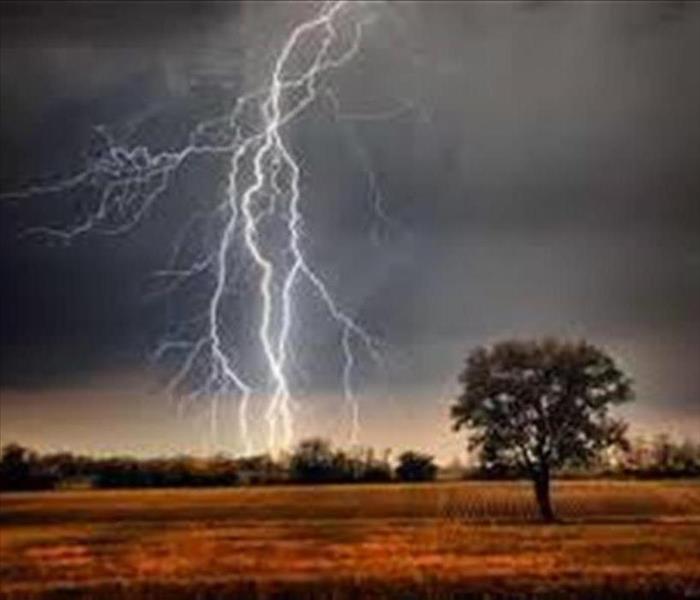THUNDERSTORM SAFETY TIPS
8/27/2018 (Permalink)
Thunderstorms are common here in the South, and can oftentimes become very severe with strong winds, lightning, tornadoes, hail, and flash flooding. It is important to be prepared before these storms happen to protect yourself and your family. You should take a few precautions in order to keep you and your family safe.
Before a Thunderstorm:
- Familiarize yourself with the terms that are used to identify a thunderstorm hazard, including understanding the difference between a severe thunderstorm watch and a severe thunderstorm warning.
A severe thunderstorm watch means there is the potential for severe thunderstorms (damaging winds/large hail) to impact your area within the next 6 hours.
A severe thunderstorm warning means a severe thunderstorm is occurring or will likely occur soon. If you are advised to take shelter, do so immediately.
Note, a severe thunderstorm refers to a thunderstorm producing winds of 58 mph or greater, 1-inch (quarter) sized hail or larger, and/or a tornado. Although lightning can be deadly, severe thunderstorm watches and warnings are not issued specifically for lightning. - Remove dead or rotting trees and branches that could fall and cause injury or damage during a thunderstorm.
- Know your lightning safety rules. For example, if you hear thunder or see lightning, go indoors. Stay indoors for at least 30 minutes after hearing the last clap of thunder.
- If thunderstorms are expected in your area, postpone outdoor activities.
- Secure outdoor objects that could blow away or cause damage.
- Shutter windows and secure outside doors. If shutters are not available, close window blinds, shades, or curtains.
During a Thunderstorm:
- If there is a thunderstorm in the area, go quickly inside a home, building, or hard top automobile, if possible.
- If shelter is not available, go to the lowest area nearby.
- If on open water, get to land and shelter immediately.
- Listen to a battery-operated NOAA Weather Radio or radio for the latest updates.
- Avoid taking a shower or a bath during a thunderstorm. Plumbing and bathroom fixtures can conduct electricity.
- Do not use electrical items such as computers or television sets as power surges from lightning can cause serious damage.
- A corded telephone should only be used in an emergency, but cordless phones and cell phones are safe to use.
Things to avoid include:
- Tall or isolated trees or other tall objects
Hilltops, open fields, the beach, a pool, a boat on the water, isolated sheds or other small structures in open areas.
Anything metal — wires, metal fences, tractors, farm equipment, motorcycles, golf carts, golf clubs, and bicycles.
After a Thunderstorm, remember to:
- Never drive through a flooded roadway. Turn around, don’t drown!
- Stay away from storm-damaged areas to keep from putting yourself at risk from the effects of thunderstorms.
- Stay away from downed power lines and report them immediately to your local power company.
If your home or business is damaged by a storm, please contact SERVPRO of Columbus / Starkville. Our highly trained professionals use specialized equipment and advanced training to quickly restore your property to pre-storm condition. We’re dedicated to responding immediately, which helps to minimize secondary damage.





 24/7 Emergency Service
24/7 Emergency Service
